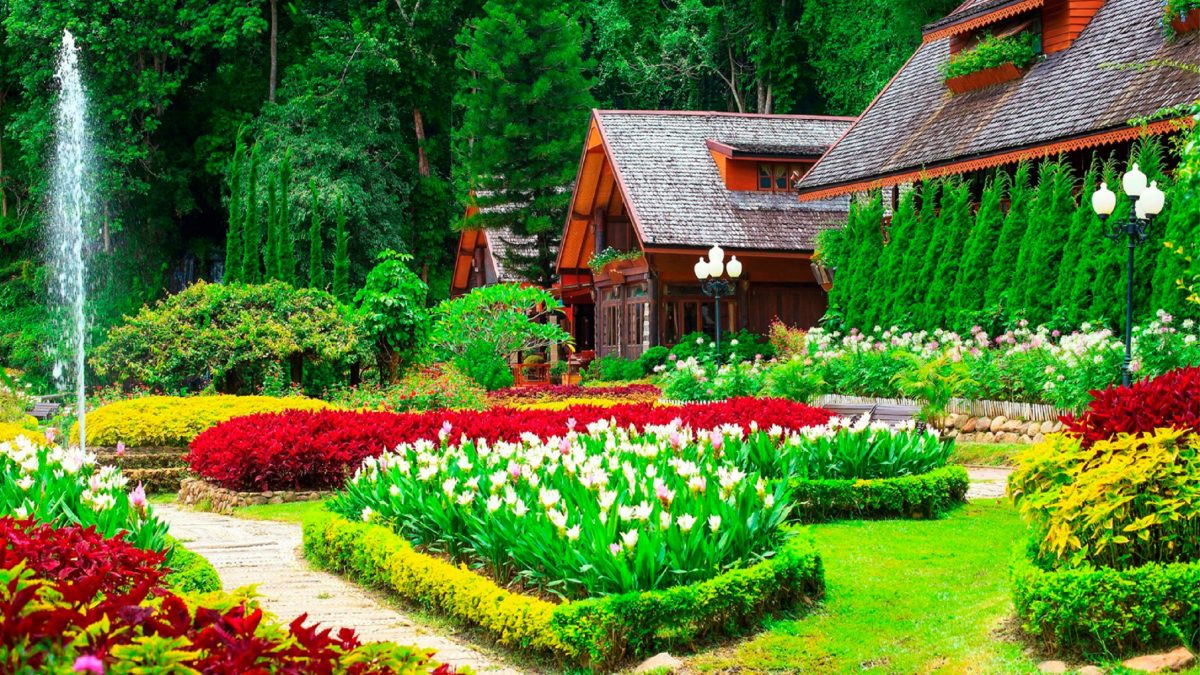Big farms use harmful chemicals, and these wind up running off into the area water supply, causing illness through contaminated well and creek water. Find out how in this article.
Make sure your seeds have enough room to grow. It is fine to have many seeds in one container before they sprout, but you will have to replant them as they grow. Use containers that are actually big enough for one plant, and avoid having more than one plant in each container.
Use mulch in your organic garden. Mulching helps retain moisture, and helps provide nutrients to your growing plants. You should try to use at least a three inch layer of mulch in all of your beds. It will also make your garden beds look as if they were professionally finished.
Water your plants during the morning to avoid having fungal growth that generally prefers moisture and darkness. By watering your plants during the day they are best able to take advantage of the sun, and utilize the suns anti-bacterial effects. Some bacteria or fungi are light sensitive, so by watering during the day you benefit the plant by reducing the growth potential of its competitors.
Use compost to feed your crops. In organic gardening, compost is necessary for the survival of your plants. A home compost pile is a great, inexpensive source of compost. Many food scraps, grass, and dry leaves can be used in your compost. However, avoid cooked foods, ash, and animal waste in an organic compost pile.
When beginning your own organic garden, you should always make sure you moisten your mix that is in the containers before you sow the seeds. If your mix is not moist, it will dry out. This could cause your plant to die before it is given a chance to grow.
To keep rodents, deer, and other pesky animals away from your organic garden, use organic repellents. A spray made from hot peppers can be effective. Otherwise try a spray containing urine or rotten eggs. Regardless of what you use, apply the sprays liberally and reapply regularly especially after a rain shower.
Choose a site for fruit trees depending on their specific requirements. Most fruit trees require 8 hours of sun per day. Morning sun is important, as it dries dew rapidly, helping to prevent fungus. Avoid planting fruit trees in a low spot in the garden where frost or cold air can collect. Some fruit trees are especially susceptible to late frost damage, and are better planted on a north-facing slope. This is especially true for peach, plum, cherry and apricot trees.
If you are new to organic gardening and are interested in growing vegetables, you should be aware that certain plants are much easier to start with than others. For example, broccoli, onions, and peppers are amongst the easiest. You should also be aware that different plants have different growing timetables. These timetables are available online. After selecting which plants you want to grow, look up their timetables so you know when to plant them.
The best time to water your organic garden is early in the morning. By watering at the start of the day, you are allowing any moisture that accumulates on the leaves to dissipate. This helps to discourage the growth of any mildew or fungus on the leaves that cold air and water would combine to create.
Certification is important in order to be considered a legitimate organic gardener. This also does several things to boost your business. First, it is likely to increase your sales as it builds trust in more customers. Second, it shows customers who have been loyal that the quality produce you provide is top notch.
When watering your indoor seeds and seedlings, it is important to keep in mind that how you water is significantly more important than how often. You will only need to water about once a week, but when you do, you want to make certain that only the top two to three inches of soil are moist and damp. You also want to be careful not to water too deep because then they will not be able to grow.
Now that you’ve read this article, it is probably clear to you that it doesn’t take a rocket scientist to grow organic produce. If you can simply follow some easy-to-implement tips, you can be well on your way to gardening success. Memorize these tips and put them to use and grow the garden you’ve been wanting.
from
https://janicelifestyleblogging.blogspot.com/
From https://janicelifestyleblogging.blogspot.com/2020/05/for-love-of-gardening-organic-gardening.html
